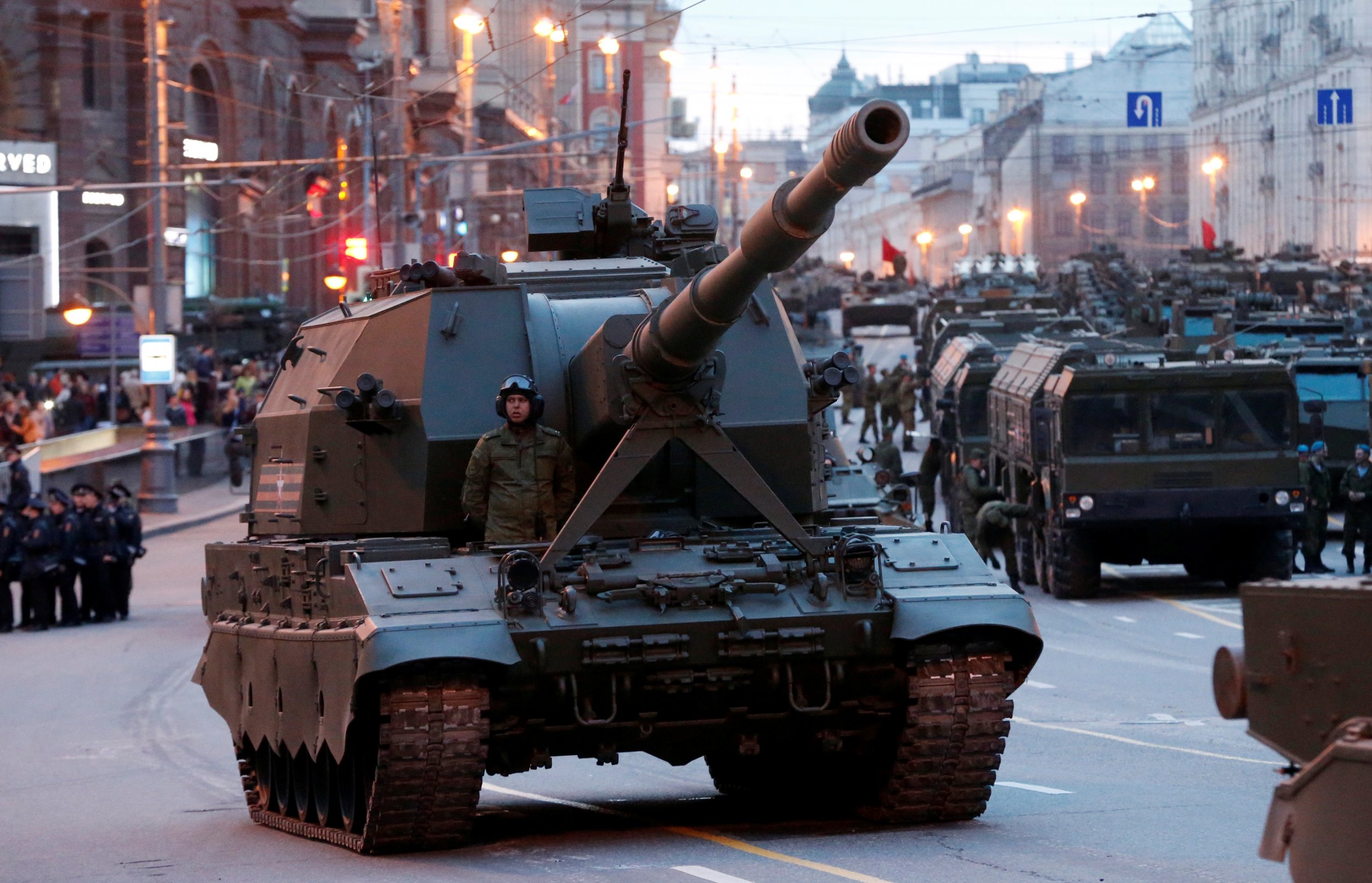
Nineteen years ago, on May 27, 1997, Russian Federation and NATO signed the Founding Act on Mutual Relations, Cooperation and Security in Paris. It is the document the Kremlin and its diplomats keep quoting as containing the NATO obligation not to permanently deploy NATO troops in the countries that were not NATO members.
One can easily see the value of the Founding Act for Russia as it puts restriction on NATO's freedom to deploy its forces east of the old border between East and West Germany. It helps, therefore, the Kremlin to maintain comparative military superiority in the areas adjacent to the former Eastern Bloc countries and the former Soviet Baltic republics.
But does Russia really value the Act? Surprisingly, the answer is negative: it was the Russian Federation who de-facto nullified the document, and did so long ago.
The above-mentioned restriction on NATO's deployments is established by the Section IV of the Act, which states, among others, that: "NATO reiterates that in the current and foreseeable security environment, the Alliance will carry out its collective defense and other missions by ensuring the necessary interoperability, integration and capability for reinforcement, rather than by additional permanent stationing of substantial combat forces." (Emphasis added.)
Section IV, while entitled "Political-Military Matters," deals almost exclusively with the Conventional Forces in Europe (CFE) Treaty. It is not surprising—it was that treaty, of which both NATO and Russia were participants, which laid down the framework of the security environment allowing the Founding Act's main provisions. It was envisaged, that the CFE Treaty would remain the cornerstone of the European security for the foreseeable future, thus defining the "foreseeable security environment". Three other important pre-conditions of the Act were listed in the Preamble and the Section I "Principles".
First of all: "NATO and Russia do not consider each other as adversaries." Mutual shared commitment to, secondly, "refraining from the threat or use of force against each other, as well as against any other state" and, thirdly, "respect for sovereignty, independence and territorial integrity of all states" were considered the fundamental principle making the goodwill deal between NATO and Russia possible.
Russia made certain obligations regarding its troops deployment, parallel to those of NATO under the Act, too: "Russia will exercise similar restraint in its conventional force deployments in Europe."
It is easy to see that none of the four conditions have survived to the present day. Russia officially suspended the CFE Treaty on November 29, 2007 when Russian President Vladimir Putin signed the Law № 276-FZ on that matter. On March 10, 2015, the Russian Ministry of Foreign Affairs officially announced that starting the next day Russia would completely withdraw from the CFE Treaty. At that point, the most important security consideration behind the Founding Act ceased to exist.
Russian military operation against Georgia in August 2008 and, most importantly, the forced separation of 20 percent of Georgian territory to come under the de-facto Russian control was the first act that displayed Russia's disregard for the principles of "refrain of use of force against other states" and "respect for territorial integrity of all states".
Russian intervention in Crimea, followed by its annexation, as well as irregular military actions, and the direct military intervention of Russian troops to the east of Ukraine have provided plenty of evidence of the same Russian disregard of the principles underlying the Founding Act.
Threats to use nuclear weapons against Denmark, Romania and Poland by Russian politicians and diplomats have become common in the Russian discourse since 2007-2008, vividly demonstrating the violation of the UN principle and Russia's own obligation to refrain from threat of use of force against the members of the Alliance.
The notion that NATO is Russia's main adversary is also so common in the Russian agenda that it is easier to list those who do not say so than to name all Russian politicians and newsmakers who openly call NATO an enemy (hardly the best example of due fulfilment of obligations under the Founding Act, is it?).
And the most recent announcement of re-establishment of the 1 st Guards Tank Army, the highly visible offensively-oriented formation that is openly against NATO, just draw the line under Russia's full and final rejection of its obligations under the Founding Act.
It is quite obvious, therefore, that the Kremlin does not really value the Act—it would not make it void by its actions otherwise, trying not to provide the other side with excuses for not to sticking to its provisions.
It is quite reasonable then to ask oneself here in the West: why should NATO insist on preservation of the Russia-NATO Founding Act if Russia itself so clearly demonstrates a lack of any interest in the document?
It might be just as productive to launch a public discussion in the NATO member states on the real need for NATO to follow the restrictions, and stick to this agreement that has been made dead by the opposite side long, long ago.
Dr. Igor Sutyagin is Senior Research Fellow, Russian Studies, Royal United Services Institute
Uncommon Knowledge
Newsweek is committed to challenging conventional wisdom and finding connections in the search for common ground.
Newsweek is committed to challenging conventional wisdom and finding connections in the search for common ground.
About the writer
To read how Newsweek uses AI as a newsroom tool, Click here.








